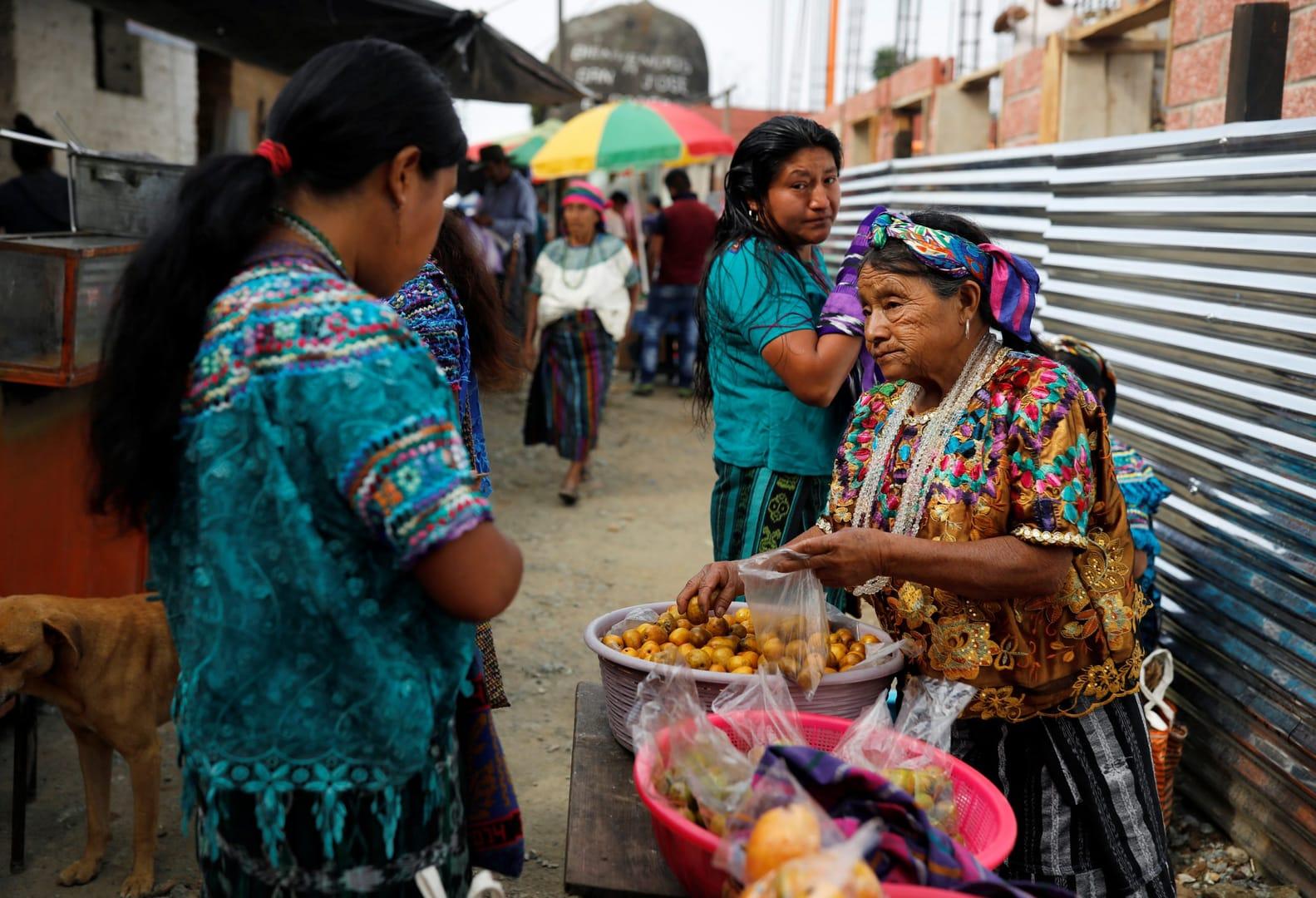NEW YORK — A decision last spring by the Trump administration to cut off humanitarian assistance to Central America is exacerbating the COVID-19 pandemic for a number of countries in the region, according to Catholic field workers.
In an effort to curtail migration, more than $400 million in Central American aid was withheld by the U.S. government by last fall, leading those on the ground to fear that it will handicap the region’s recovery and likely have the unintended consequence of forcing future migration.
Paul Townsend, the Catholic Relief Services (CRS) country representative for Guatemala, told Crux that the country has the greatest food insecurity in the region and the pandemic has made those suffering even more vulnerable.
He described a situation of chronic malnutrition among children, severe drought, and plummeting commodity prices — all posing particular challenges for young children, single mothers, the disabled and the elderly.
“They live off raising corn and beans and a little bit of livestock,” said Townsend, with many workers temporarily migrating within the country, and more recently to Mexico and the U.S, doing off seasons to make ends meet.
One of CRS’s most successful programs which provided cash transfers to 4,600 families during the most vulnerable months of harvesting seasons was funded by U.S. humanitarian assistance — which was brought to an abrupt halt a year ago.
Many of these families were forced to sell off livestock and the tin on their roofs to survive, leaving them with even less capital, said Townsend.
“This was the first time in 30 years with CRS that I’ve seen humanitarian assistance blocked as part of a political decision,” he recalls, noting that the decision targets the very people who then become forced to migrate.
Fast forward to a year later, the COVID-19 pandemic means that access to food outside of the country is limited, workers are unable to move within the country to seek new work, and now the U.S. government is deporting detainees who are carrying the virus back to the country, thus furthering its spread.
“There’s no social safety net to attend to people who are coming in during a very vulnerable moment in their life,” Townsend observed. “I feel like we’re being set back decades in the work that’s been done because all of a sudden we’re having to move very quickly to relief mode.”
Rick Jones, a youth and migration advisor In Latin America and the Caribbean for CRS, describes a similar situation in El Salvador and Honduras.
He told Crux that as El Salvador braces for the approaching rainy season, the food insecurity will likely be heightened. He’s also worried about the country’s healthcare system being overwhelmed, noting that before the pandemic there were only 100 ICU units available in a country of over 6 million people.
Jones fears that the current state of the shelters — where infected patients and those being quarantined are all sleeping in the same space in bunk beds — risks turning the facilities into breeding grounds for the virus.
Both Townsend and Jones believe that if the United States is interested in both helping the region and stemming the spread of the virus globally, they should immediately release the funding to Central America.
While the U.S. government announced last month that they would release $258 million in funding for the region, it would go toward law enforcement and security, rather than humanitarian and anti-poverty assistance. Townsend and Jones believe this is a mistake and goes against both regional interests, as well as that of the U.S. government.
Townsend told Crux that while some skeptics of foreign aid are wary of allowing foreign governments to direct funding due to the possibility of corruption, it’s all the more reason that funds should be directed to humanitarian assistance programs like CRS, which has been in the region for over 50 years and has the expertise to ensure funds get in the hands of those who need it most.
He also says it’s important to remember that foreign humanitarian assistance accounts for less than one percent of the nation’s overall budget, and he believes that when people understand how that money is being spent — such as supporting programs like those of CRS — that they become much more supportive of it.
“If Central America is to recover quickly, they’re going to need an injection of a lot of the money for standard humanitarian projects that can be directed at good security and helping the poorest,” Jones told Crux.
“The fact that the United States continues to deport people in a region where they’ve cut off aid, makes it very difficult for countries to respond,” he continued, adding that there’s a tragic irony at play here: In an effort to stem migration, by cutting off funding for the region, the U.S. is risking creating a new wave of migrants heading north.
“If there is no US support for these people, there’s a boomerang effect where people are going to get desperate and say I have no other opportunity but to migrate,” said Jones. “It’s just going to refuel the cycle all over again.”
Follow Christopher White on Twitter: @cwwhite212











